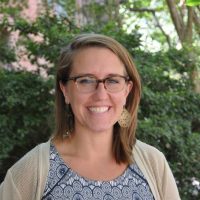The Abstract: January 30, 2023

January 30, 2023
Whether you’re local or global, student or alumni, the Abstract’s weekly news digest will help you stay in the loop with our amazing Gillings School community.
Rosenberg publishes new study on HIV incidence in sub-Saharan Africa

Dr. Nora Rosenberg
Nora Rosenberg, PhD, associate professor of health behavior, is lead author on a new study published in The Lancet HIV, titled “Adult HIV-1 incidence across 15 high-burden countries in sub-Saharan Africa from 2015 to 2019: a pooled analysis of nationally representative data.” It estimates and identifies the differences in HIV incidence rates among adults and the number of new infections by sex, age, and subregion in sub-Saharan Africa between 2015 and 2019. This data is important because, until recently, previous data had not been measured at a regional or subregional level.
The study measured a cohort of adults and expressed the results in person years, which takes into account both the number of people and the time that they were in the study. The researchers found that in 15 countries with high HIV burden in sub-Saharan Africa, approximately three in every 1,000 susceptible adults ages 15-59 years acquired HIV annually during the study period.
“This is the largest empirical estimate of HIV incidence to date, representing 265 million adults living in 15 countries,” said Rosenberg. “On the surface, the HIV incidence rate may appear low—fewer than three in every 1,000 adults getting infected each year—but this translates to 689,000 annual adult infections — a staggering number.“
Out of 445,979 adults in the study, 382 were found to have a recent HIV infection. The estimated HIV incidence rate was 3.3 per 1,000 person-years among women and two per 1000 person-years among men.
Among adults between 15-24 years, the incidence rate was higher for women than men, but infection rates were similar between sexes in all other age groups. The HIV incidence rate was 7.4 per 1,000 person-years in southern sub-Saharan Africa, 2.3 per 1,000 person-years in the eastern subregion, and 0.9 per 1,000 person-years in the western and central subregion. 689,000 new HIV cases were estimated annually among the 265 million susceptible adults.
Professor and Associate Chair Michael Hudgens, PhD, and Assistant Professor Bonnie Shook-Sa, DrPH, of the Department of Biostatistics, are also co-authors on the study.
“In spite of two decades of HIV programming in sub-Saharan Africa, the HIV epidemic continues to smolder,” Rosenberg said. “There is an urgent need for finding the people at greatest risk of HIV and supporting them with effective HIV prevention strategies.”
Vizuete collaborates with NCA&T workshop on air quality in Africa

Dr. William Vizuete
Will Vizuete, PhD, professor of environmental sciences and engineering at the Gillings School, was co-organizer of an international workshop hosted by Solomon Bililign, PhD, at North Carolina Agricultural and Technical University (NC A&T) on air quality in Africa.

Dr. Solomon Bililign
Bililign, a professor in the College of Science and Technology at NC A&T, chaired this international workshop on air quality in Africa from Jan. 17-19. More than 80 attendees participated either virtually or in person during the three-day workshop held at the Carnegie Mellon University Africa campus in Kigali, Rwanda.
“People are suffering and there are more than 1 million premature deaths in Africa because of the poor air quality as cities grow,” said Bililign. “The challenge is some of these countries with emerging industries, for example, have to choose between letting their people die either of hunger or air pollution. If they allow more polluters with fewer regulations, that could help economic growth by providing jobs and helping address hunger; however, it will be at the expense of public health.”
Vizuete, a leading expert on atmospheric quality, participated and will continue to be part of the organizing committee going forward.
Gillings researchers publish new study on HIV coping strategies in Cameroon

Dr. Angela Parcesepe

Dr. Lindsay Filiatreau

Amanda Gomez
Researchers at the Gillings School, led by Assistant Professor Angela Parcesepe, PhD, doctoral alumna Lindsey Filiatreau, PhD, and doctoral student Amanda Gomez, have published a new paper in AIDS and Behavior titled “Coping Strategies and Symptoms of Mental Health Disorders Among People with HIV Initiating HIV Care in Cameroon.”
Professor Brian Pence, PhD, is also a co-author on the study.
Little is known about the coping strategies used among people with HIV, especially in sub-Saharan Africa, and the extent to which adaptive or maladaptive coping strategies are associated with symptoms of mental health disorders. The researchers interviewed 426 people with HIV initiating care in Cameroon and reported the prevalence of adaptive and maladaptive coping strategies, both overall and by the presence of symptoms of depression, anxiety and post-traumatic stress disorder. The study found that people with HIV displayed a range of coinciding adaptive and maladaptive coping strategies.
Adaptive and maladaptive coping strategies were commonly reported among people with HIV enrolling in HIV care in Cameroon. Across all mental health disorders that the team assessed, greater maladaptive coping was associated with a higher prevalence of depression, anxiety and PTSD. Adaptive coping was not associated with symptoms of any of the mental health disorders that the team assessed.
The researchers say that future efforts should explore the extent to which coping strategies change throughout the HIV care continuum. Interventions to reduce maladaptive coping have the potential to improve the mental health of PWH in Cameroon.
Ozawa serves on panel estimating impact of misinformation and vaccine hesitancy
A new report released by the Council of Canadian Academies examines the socioeconomic impacts of science and health misinformation and describes best practices for identifying and responding to misinformation.

Dr. Sachiko Ozawa
Sachiko Ozawa, PhD, MHS, a health economist, served as a panel member for the report, titled Fault Lines, which details how science and health misinformation can proliferate and describes its impacts on individuals, communities and society. Ozawa is a faculty fellow at the Carolina Population Center, associate professor in the Eshelman School of Pharmacy, and adjunct associate professor of maternal and child health at the Gillings School.
The economic models developed by Ozawa estimated the health impacts and hospitalization costs associated with COVID-19 vaccine hesitancy in Canada and the role misinformation played in contributing to this hesitancy.
A summary of findings for the report notes that between March and November 2021, misinformation contributed to vaccine hesitancy for an estimated 2.35 million people in Canada. If those people who believed COVID-19 to be a hoax or exaggerated had not delayed or refused vaccination, then, by the end of November 2021, there could have been $299 million saved in hospital costs and 13,000 fewer hospitalizations.
Innovation, Science and Economic Development Canada (ISED) sponsored the research report, which came out on January 26.
